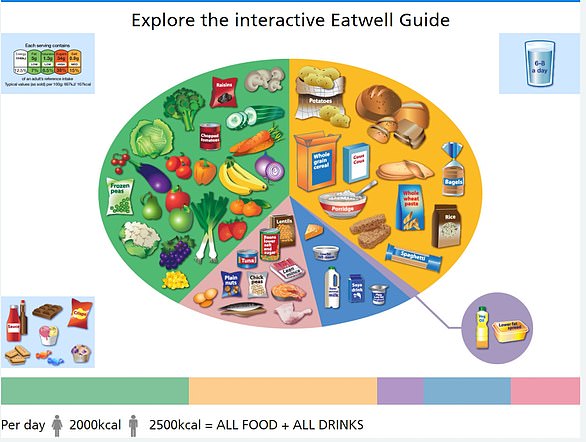Avoiding animal fats such as butter and opting instead for vegetable oils such as those from olives and nuts is better for the heart, say European experts.
People have been urged to cut back on saturated fats such as butter and instead replace them with unsaturated vegetable fats such as those used in the Mediterranean for years to reduce the risk of heart disease.
Eating too much saturated fat increases the level of bad cholesterol in the blood, leading to the buildup of fatty deposits that can narrow blood vessels and increase the risk of stroke.
Excessive consumption can also cause weight gain, a risk factor for type 2 diabetes.
Now, Swedish and German researchers have shown that people who consume more vegetable oils reduce their chances of suffering heart attacks and strokes by a third, and their risk of developing diabetes by a quarter.
Avoiding animal fats, such as butter, and opting instead for vegetable oils, such as those from olives and nuts, is better for the heart, say European experts

For years, people have been urged to cut back on saturated fats, such as butter, and instead switch to unsaturated vegetable fats such as those in olive oil, used in the Mediterranean, to reduce the risk of heart disease.
Additionally, switching from a diet high in saturated fat to one with unsaturated alternatives could reduce the risk of developing type 2 diabetes by 42 percent.
They said their findings strengthen global recommendations to reduce saturated fats, which they say were being undermined by limitations of existing research.
Part of their study involved examining the blood fat results of 113 Britons who for 16 weeks ate a diet high in saturated animal fats, such as butter or lard, and a diet high in unsaturated vegetable fats, such as olive oil and nuts.
Blood fat levels were then assessed using what scientists called a “multilipid score” (MLS), which measured different types of fat in the blood.
Dr Fabian Eichelmann, a nutrition expert at the German Institute of Human Nutrition and author of the study, explained: “A high MLS indicates a healthy blood fat profile, and a high intake of unsaturated vegetable fat and a low intake of saturated animal fat can help achieve such positive MLS levels.”
The researchers then took the MLS scores and applied them to two longer-term studies involving many thousands of participants that tracked the risk of cardiovascular disease, which can trigger heart attacks and strokes, and type 2 diabetes over several years.
The analysis showed that those with higher MLS scores, indicating a diet rich in unsaturated fats, had a 32 percent lower risk of cardiovascular disease and up to a 26 percent lower risk of type 2 diabetes.
Finally, the researchers, who published their findings in the journal Natural medicineThey then explored whether people with low MLS scores might benefit from switching to a diet richer in unsaturated fats, such as the Mediterranean diet.
Examining the results of another study of 7,500 people, they found that people with low MLS scores who then switched to a diet with unsaturated fats reduced their risk of diabetes by 42 percent.
The experts did not see a similar reduction in cardiovascular disease risk, but noted that the data they examined were from patients considered to be at high risk for the condition and that further studies are needed for people at lower risk.
Another lead author of the study, Clemens Wittenbecher, a food and nutrition expert at Chalmers University of Technology in Sweden, said his study confirms the benefits of plant-based fats.
“Our study further confirms the health benefits of a diet rich in unsaturated vegetable fats such as the Mediterranean diet and could help provide specific dietary advice to those who would benefit most from a change in their dietary habits,” she said.
The authors noted that their study had several limitations; first, it did not perform independent interventions to validate the observed effects of dietary change.
Second, their findings were based primarily on Europeans, and therefore the results might not be applicable to other groups.
A small amount of fat is considered an essential part of a balanced diet, as it helps absorb certain vitamins; healthier versions also help reduce bad cholesterol.
The NHS recommends that men consume only 30g of saturated fat per day and women only 20g.
She also advises people to eat unsaturated fats, but says Britons usually get enough of these through their diet so we don’t need to push ourselves to eat more.
One exception to this is oily fish: Britons are advised to eat one portion per week of foods such as salmon and mackerel to get their omega-3 fats.
While the researchers in the latest study were keen to tout the benefits of “plant-based fats,” it’s important to remember that not all plant-based fats are unsaturated.
Both palm oil, coconut oil and cream are considered saturated fats.



